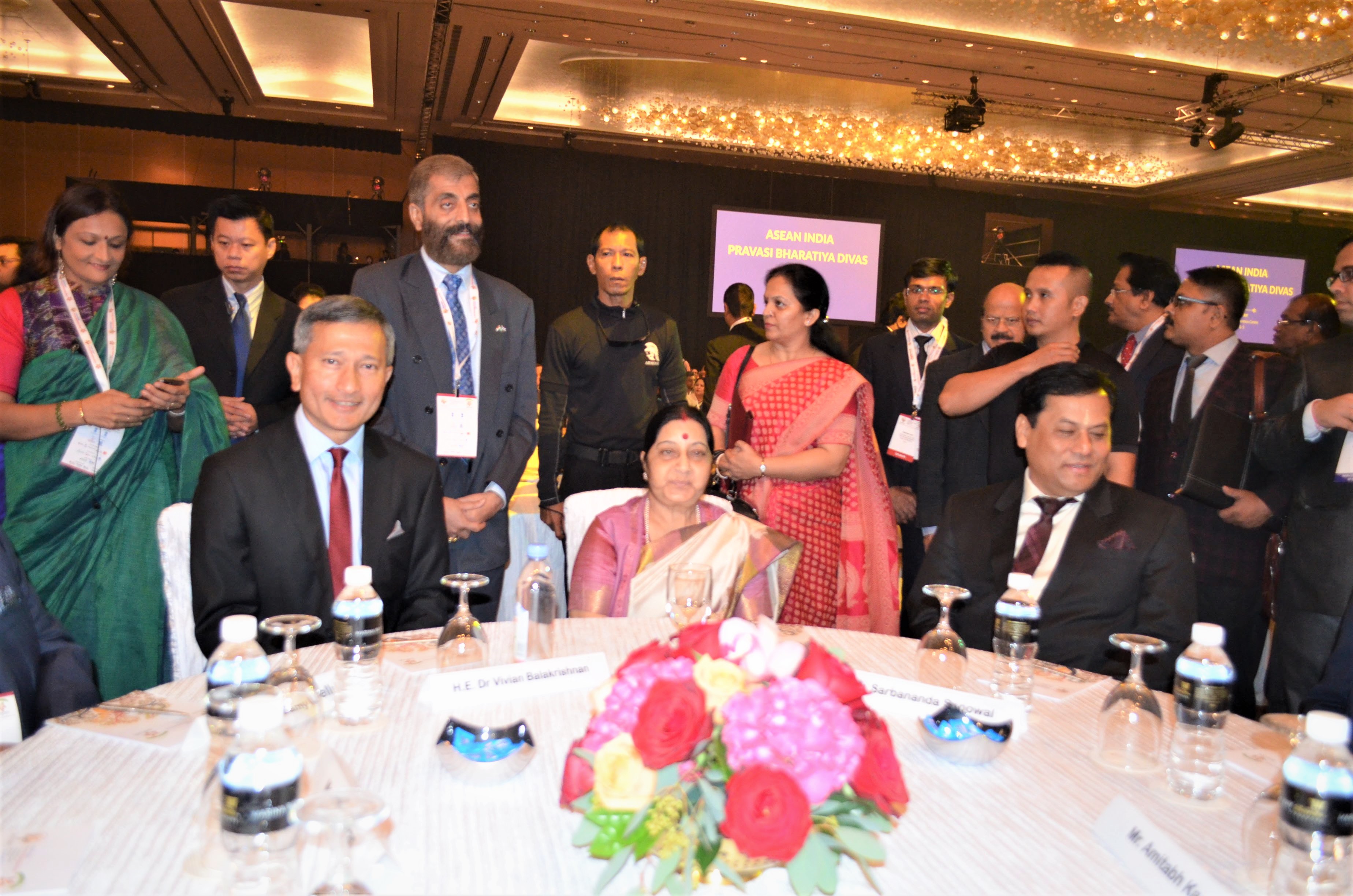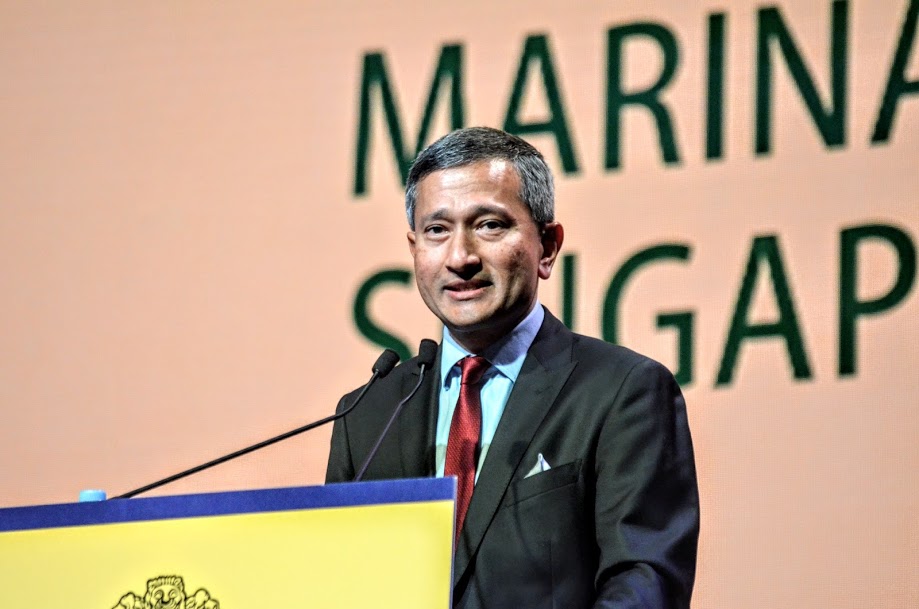Making a clarion call for charting a ‘New Journey’ leading to the prosperity of India-ASEAN citizens, Minister for Foreign Affairs of Singapore Dr Vivian Balakrishnan stressed on three steps for achieving the objective including economic integration, enhanced connectivity and linking cities into a Smart City network between ASEAN and India. He was addressing members of Indian diaspora at the Pravasi Bharatiya Divas in Singapore.
Economic integration
Elaborating on the step of economic integration of India and ASEAN, the Minister said, “First, we need to press on with economic integration. This is not just a mantra, but crucial for the mutual prosperity of the citizens of India and ASEAN. Singapore is therefore working with all partners towards unlocking this potential through the Regional Comprehensive Economic Partnership (RCEP).”
Speaking on RCEP, he said, “It offers us a historic opportunity to establish the world’s largest trade bloc. It will pave the way for our businesses to harness the region’s true potential. And for India, which will soon be the largest country in the world in terms of population, the largest source of middle class growth in the next 20 years, and because India remains young in next two to three decades, this is a historic opportunity for India.”
“If we add India to ASEAN, and the countries of Australia, China, Japan, New Zealand and the Republic of Korea (ROK), this group potentially covers almost half the world’s population, a third of global GDP; and 40 per cent of global trade flows. These are historically unprecedented opportunities,” he added.
Enhancing connectivity
Dr Balakrishnan emphasised on taking steps for enhancing the connectivity between India and the ASEAN region. He said, “One of the more immediate ways to enhance connectivity is to expand air links, to have more flights and more affordable air tickets that will facilitate the movement of businessmen, tourists, and students. This will enhance people-to-people ties between ASEAN and India.”
While referring to the digital connectivity, the Minister said, “Today there is a new road: digital connectivity. The digital space opens up many possibilities to transcend borders, cultures, societies and to level the playing field, to open opportunities for everyone, not just the people at the top, but for everyone across all bands of society.”
“We should seize this opportunity to digitally connect ASEAN and India in areas including FinTech, e-payments and others,” he added.
Praising India for adopting digital connectivity in a big way, Dr Balakrishnan said, “India has been a leading example of a country that has been able to leapfrog old hurdles and take advantage of opportunities in the digital space. For instance, the implementation of Aadhaar was a phenomenal moment, and a mammoth task for a country as large as India. And the fact that India could do it speaks volumes about its ambitions and possibilities in the decades to come.”
“Singapore stands ready to partner India in areas of innovation, and to serve as a catalyst for this in our region,” he said.
Smart City Network
Speaking about the Smart City network, the Minister said, “We will work on linking cities into a Smart City network between ASEAN and India. We will exchange best practices in terms of technology, urban governance, and sustainable development. We will share, learn, and network among our smart cities. We believe this will drive economic growth and provide many opportunities for our young people in ASEAN and in India.”
My Prime Minister proposed last November that one of the initiatives that we will focus on during Singapore’s 2018 ASEAN Chairmanship is the natural synergies between an ASEAN Smart Cities Network and India’s goal of 100 Smart Cities. In fact, considering India’s side, 100 smart cities is only the beginning. There will be thousands of smart cities across India ultimately,” he added.
Speaking about the future urban challenges of India, Dr Balakrishnan said, “India is also poised to face massive urban challenges, because we expect that by 2050, some 60 per cent of its population will live in cities. In the case of ASEAN, we surpassed the 50 per cent mark in 2012. This ongoing urbanisation, this need for infrastructure and investments will provide huge opportunities for our businesses and our people in the decade to come. The point is, we have a lot to gain from cooperation.”
Referring to the role of Singapore in making of Amravati, new capital of Andhra Pradesh, the Minister said, “Singapore was honoured to be invited by the Government of Andhra Pradesh to partner in the development of the “People’s Capital” of Amaravati to establish a highly liveable and sustainable city with excellent infrastructure, services, and high standards of governance.”




